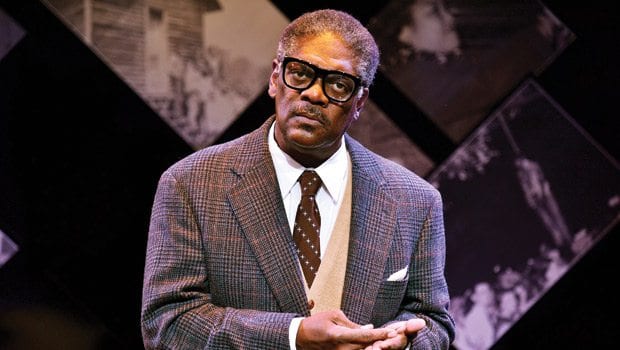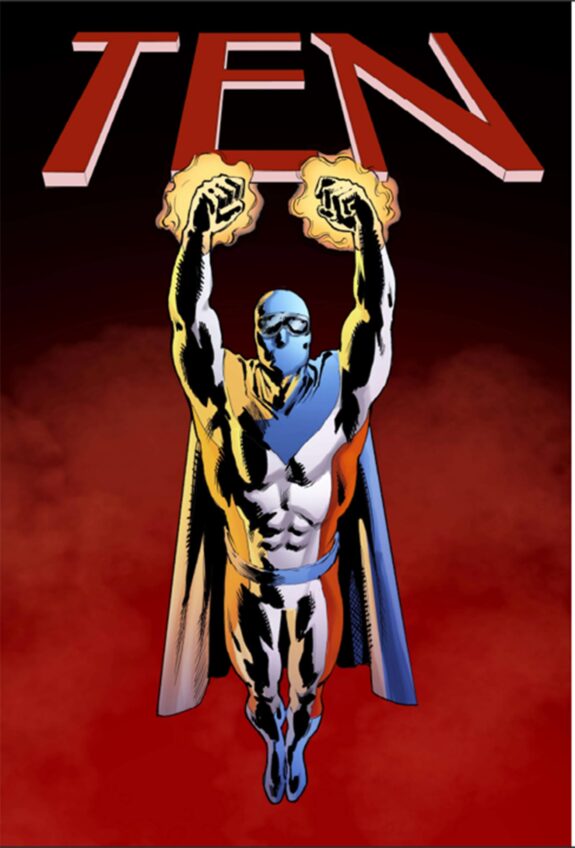
Earlier this month, the New Repertory Theatre launched its “Prophetic Portrait” series of historical figures with “Thurgood,” a one-man show by George Stevens Jr. and directed by Benny Sato Ambush. It features Johnny Lee Davenport as the legendary Supreme Court Justice Thurgood Marshall. Playing through Feb. 5 in the black box space at the Mosesian Center for the Arts in Watertown, the show provides an intimate, personal and professional portrait of the legal giant with wit, humor and perseverance.

Johnny Lee Davenport as Supreme Court Justice Thurgood Marshall.
On the web
For more on “Thurgood,” visit: www.newrep.org/productions/thurgood/
For audiences with limited knowledge about Thurgood Marshall, the play serves as an engaging two-hour history lesson. On top of the names and dates with which Davenport jogs our memories, he reveals pivotal moments in Marshall’s life that shaped him into the fighter for justice he’s known to be. In an early scene he describes looking out the window of his grammar school in Baltimore in 1916, watching policemen assault black prisoners.
He says, “As a boy I came to learn that two things marked my family. Strange names and stubbornness. To this day I can’t get it out of my mind, the sound of those white policemen beating those negro prisoners.” In the low moments, Davenport says, “Sometimes I get a little weary trying to save the white man’s soul.”
Though Marshall’s life had its share of hardship, including multiple miscarriages, a dearly departed wife and a constant uphill struggle against racism, the show accentuates equally his triumphs. Marshall talks about being sheepishly embarrassed in front of his classmates at school, about his reputation as a ladies’ man juggling multiple girlfriends at once and about celebrating his court victories at his favorite bar. These details humanize the epic figure.
Johnny Lee Davenport is ideal in the part, playing Marshall as at once gracious, hardworking, bigheaded and confident. He also brings out Marshall’s penchant for comedy. This subject matter easily could have gone preachy and somber, but Davenport’s natural physical wit and punch line delivery balances the heavy themes.
Two Supreme Court decisions bookend the play: Plessy v. Ferguson (1896), the case that haunted Marshall throughout his career, and Brown v. Board of Education (1954), the case that redeemed him. The show culminates in the Brown decision. Having spent an hour and a half becoming invested in Marshall and his career, the audience holds its breath as a recording of the decision plays. We know what’s coming, but seeing Davenport as Marshall react to winning a case he spent years fighting is worth the ticket price in itself.
“Thurgood” is a unique portrait of a complicated, flawed and ultimately great man. The heavy dose of facts is blended seamlessly into a moving narrative that feeds your mind and soul. It also reminds us it’s important to keep working. In his final moments, Marshall says, “We all know how far we’ve come. But we all know how far we still have to go. And I’m gonna stay in this fight.”






